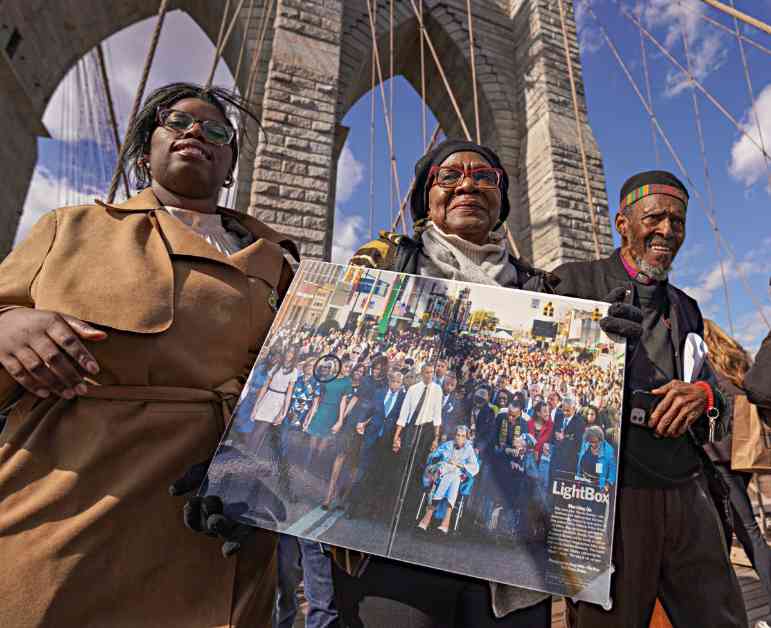Hundreds of individuals gathered on the Brooklyn Bridge on March 9 to honor the 60th anniversary of “Bloody Sunday,” a pivotal moment in the civil rights movement that took place on a bridge in Alabama. This historic event, led by Dr. Martin Luther King Jr., was a powerful protest against racial injustice and a demand for voting rights for Black Americans. The peaceful march quickly turned violent as state troopers attacked the demonstrators with batons and tear gas, leaving many injured and prompting national outrage.
Decades later, a group of individuals who had participated in the original march and witnessed the brutality came together outside New York City Hall to reflect on the progress made since that fateful day in Alabama. Among them was Harriet Michel, who vividly recalled the chaos and violence of the march. She held up a photograph showing her tending to a man who had been severely injured in the attack, a poignant reminder of the sacrifices made in the fight for equality.
As Michel and others gathered to commemorate the anniversary, they expressed concern about the current state of civil rights in America. Former Manhattan Borough President C. Virginia Fields, who had marched alongside Dr. King as a teenager, voiced her fears that the progress made during the civil rights movement was under threat, particularly in light of the current political climate. She highlighted the importance of protecting voting rights, civil rights, and other hard-won gains to ensure that history does not repeat itself.
The event was organized by civil rights attorney Norman Siegel and Harriet Michel, who sought to pay tribute to the past while advocating for a better future. Participants of all ages and backgrounds came together to march across the Brooklyn Bridge, carrying signs and banners with messages of unity and resistance. Children held signs bearing the words of civil rights icon John Lewis, urging people to make “good trouble,” while others called for a commitment to progress with slogans like “back to the bridges.”
In a powerful statement, Norman Siegel emphasized the importance of moving forward and rejecting the notion of returning to a time of division and discrimination. He pointed out that for some, the phrase “Make America Great Again” symbolizes a desire to regress to a time when marginalized groups faced systemic oppression and inequality. By marching together and standing up for justice, the participants sent a clear message that they refuse to go back to a time of intolerance and bigotry.
The march across the Brooklyn Bridge served as a reminder of the ongoing struggle for civil rights and equality in America. As the participants made their way across the iconic landmark, they embodied the spirit of resilience and determination that has defined the fight for justice throughout history. With each step, they honored the sacrifices of those who came before them and reaffirmed their commitment to building a more inclusive and equitable society for future generations. The legacy of “Bloody Sunday” lives on in the hearts and minds of those who continue to march for justice and equality.

